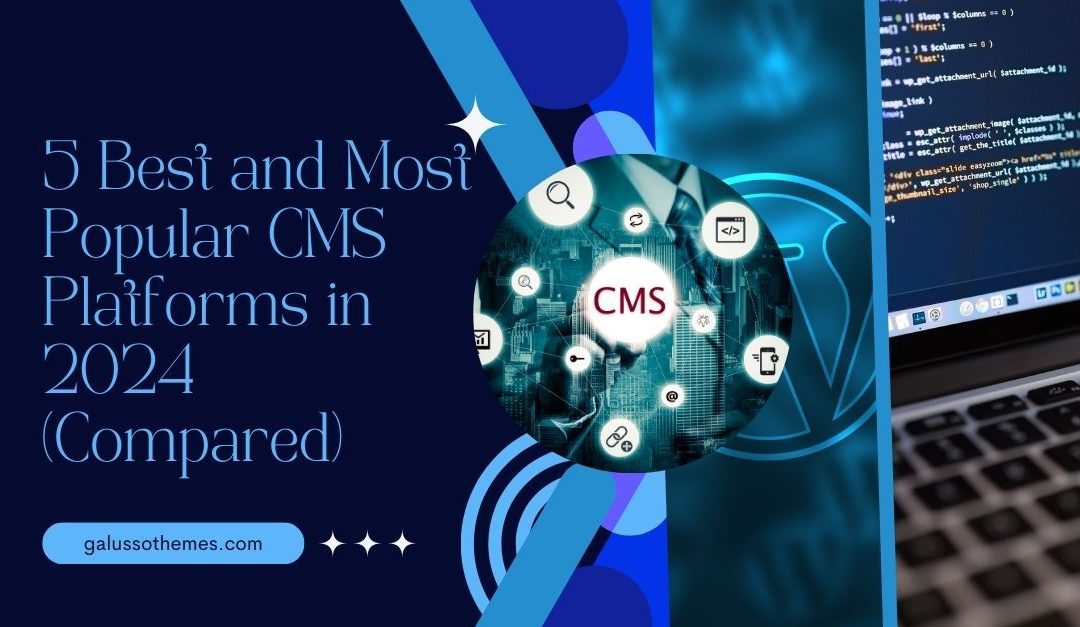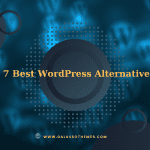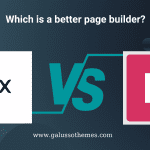In the ever-evolving world of digital content management, the choice of a content management system (CMS) can make all the difference in the success of a website or online presence. As we move into 2024, the CMS landscape continues to evolve, with new players emerging and established platforms refining their offerings. In this blog post, we’ll take a deep dive into the best and most popular CMS platforms of 2024, analyzing their features, strengths, and suitability for different types of websites and projects.
What is a CMS Platform?
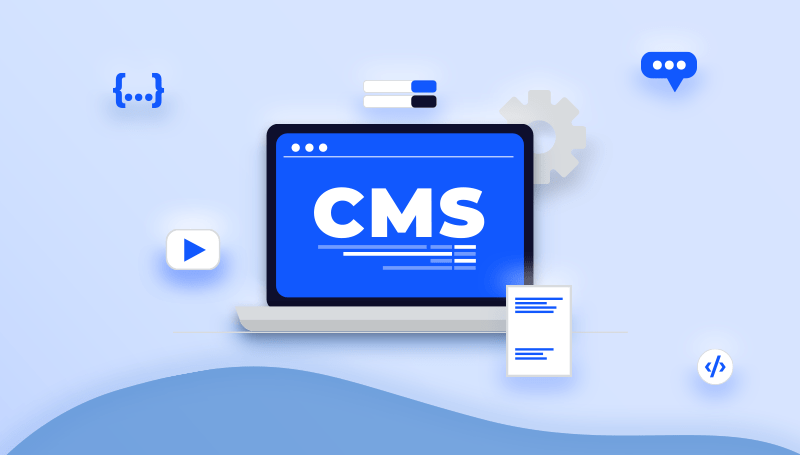
A CMS (Content Management System) Platform is a software application that allows users to create, manage, and publish digital content on websites and web applications without requiring extensive technical knowledge or coding skills.
The key features and functions of a CMS platform include:
- Content Creation and Editing:
- Provides a user-friendly interface for authors and editors to create, format, and publish content (e.g., articles, blog posts, product descriptions, etc.).
- Typically includes a WYSIWYG (What You See Is What You Get) editor for easy content manipulation.
- Content Organization and Management:
- Allows users to categorize, tag, and structure content in a logical and searchable manner.
- Provides features for version control, content scheduling, and workflow management.
- Media Management:
- Enables users to upload, organize, and embed various media files (images, videos, documents, etc.) within the content.
- Offers media optimization tools for improving website performance.
- Template and Design Management:
- Provides a range of pre-built themes, templates, and design elements that can be easily customized to match the branding and visual identity of a website.
- Allows non-technical users to modify the website’s appearance and layout without directly editing the underlying code.
- User Management and Access Control:
- Allows the assignment of different user roles and permissions, enabling collaborative content creation and publishing workflows.
- Provides features for user registration, login, and access management.
- Search Engine Optimization (SEO):
- Offers built-in tools and settings to optimize content and website structure for better search engine visibility and ranking.
- Includes features like meta tags, sitemaps, and URL management to enhance SEO performance.
- Extensibility and Scalability:
- Provides a plugin or module system that allows the integration of additional functionality, such as e-commerce, forums, social media integration, and more.
- Supports the scalability of the website or web application as the content and user base grow over time.
Popular CMS platforms include WordPress, Drupal, Joomla, Magento, and Shopify, each with its own unique strengths, target audience, and use cases. The choice of a CMS platform depends on the specific requirements of a website or web application, including content management needs, technical expertise, and the desired level of customization and scalability.
How to Choose the Best CMS Platform for Your Website
Choosing the best CMS platform for your website can be a daunting task, as there are numerous options available, each with its own set of features and capabilities. Here’s a step-by-step guide to help you select the most suitable CMS platform for your website:
- Define your website’s requirements:
- Determine the primary purpose of your website (e.g., blog, e-commerce, portfolio, corporate website).
- Identify the key features and functionality you need, such as content management, e-commerce capabilities, multimedia support, user management, and SEO optimization.
- Assess the level of customization and flexibility required to meet your website’s unique needs.
- Evaluate the technical expertise of your team and the resources available for website management and development.
- Evaluate the available CMS platforms:
- Research and compare the most popular CMS platforms, such as WordPress, Drupal, Joomla, Magento, and Shopify.
- Assess each platform’s features, ease of use, scalability, security, and community support.
- Determine the level of customization and extensibility offered by each CMS, as well as the availability of third-party plugins and integrations.
- Consider the platform’s content management capabilities, including content creation, organization, and publishing workflows.
- Analyze the CMS platform’s suitability for your website:
- Match the features and capabilities of each CMS platform to the requirements you identified in step 1.
- Assess the learning curve and technical skills required to manage and maintain the CMS platform effectively.
- Evaluate the platform’s performance, security, and compliance with industry standards and best practices.
- Consider the long-term scalability and maintenance of the CMS platform as your website grows and evolves.
- Assess the total cost of ownership:
- Determine the initial and ongoing costs associated with the CMS platform, including licensing fees, hosting, and any necessary third-party plugins or extensions.
- Factor in the costs for website development, maintenance, and any required technical support or training.
- Compare the total cost of ownership across the different CMS platforms to ensure you’re choosing a solution that fits your budget and long-term goals.
- Evaluate the CMS platform’s community and support:
- Assess the size and activity of the CMS platform’s user community, as this can indicate the availability of resources, tutorials, and third-party support.
- Determine the level of official support provided by the CMS platform’s developers, including documentation, security updates, and technical assistance.
- Consider the platform’s overall ecosystem, including the availability of third-party plugins, themes, and integrations that can enhance your website’s functionality.
- Conduct a pilot or proof-of-concept:
- If possible, set up a small-scale test or pilot project using the CMS platform you’re considering.
- Evaluate the platform’s ease of use, content management capabilities, and overall performance with your specific requirements.
- Gather feedback from your team and stakeholders to ensure the CMS platform aligns with your website’s goals and user needs.
WordPress
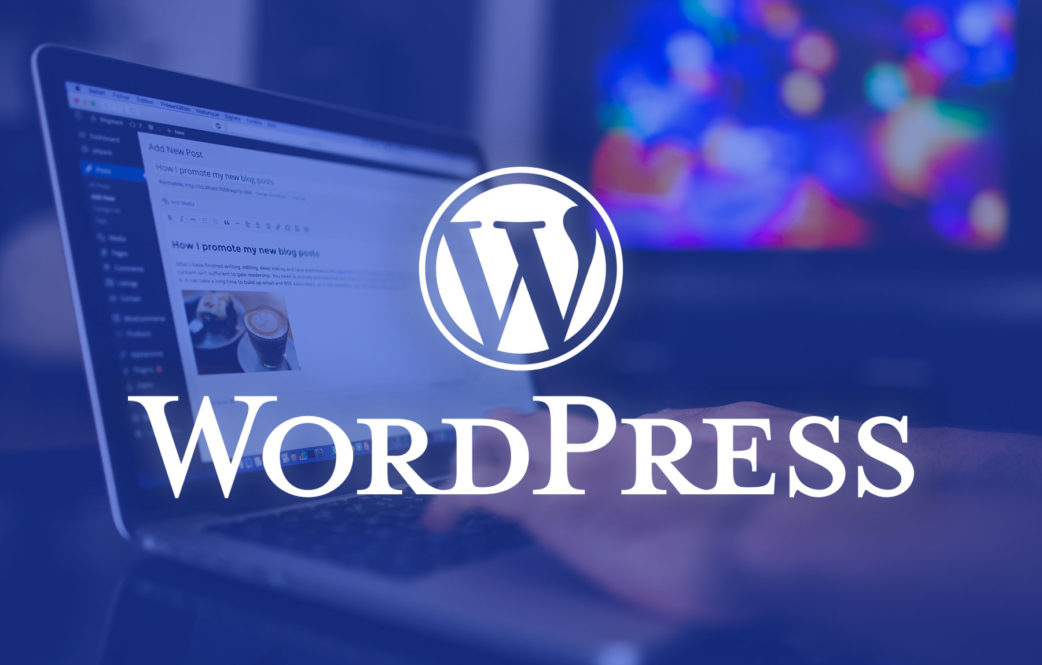
There are several compelling reasons to choose WordPress as your content management system (CMS) for your website:
- Ease of Use:
- WordPress is renowned for its user-friendly interface, making it accessible and intuitive for both novice and experienced users.
- The platform’s WYSIWYG editor and drag-and-drop functionality allow users to create and manage content without extensive technical knowledge.
- Flexibility and Scalability:
- WordPress is a highly customizable platform, with a vast ecosystem of themes, plugins, and integrations that can be used to build websites of all sizes and complexity.
- Whether you need a simple blog, an e-commerce store, a directory, or a complex web application, WordPress can be easily adapted to meet your needs.
- SEO-Friendly:
- WordPress is designed with search engine optimization (SEO) in mind, providing features like clean URLs, meta tags, sitemaps, and integration with popular SEO plugins.
- This makes it easier to optimize your website’s content and structure for better search engine visibility and higher organic rankings.
- Large and Active Community:
- WordPress has a massive and thriving community of developers, designers, and users who contribute to its ongoing development, create innovative plugins and themes, and provide extensive support and resources.
- This community ensures a constant stream of updates, security patches, and new features to keep your website up-to-date and secure.
- Cost-Effective:
- WordPress is an open-source platform, which means it is free to download, use, and customize.
- While there are paid options for premium themes, plugins, and hosting services, WordPress can be a cost-effective solution, especially for small to medium-sized businesses and individuals.
- Multilingual and Multisite Capabilities:
- WordPress supports multiple languages and provides tools for creating multilingual websites.
- The platform also offers a Multisite feature, which allows you to manage and maintain multiple websites from a single WordPress installation.
- Extensive Plugin Ecosystem:
- WordPress has an extensive plugin repository, with thousands of free and premium plugins available to extend the functionality of your website.
- These plugins cover a wide range of features, including e-commerce, social media integration, forms, analytics, and much more.
- Mobile-Friendly:
- WordPress is designed to be mobile-responsive, ensuring that your website looks and performs well on a variety of devices, from desktops to smartphones and tablets.
- This is crucial in today’s mobile-centric web landscape, where a significant portion of web traffic comes from mobile devices.
In summary, WordPress’s ease of use, flexibility, SEO-friendliness, strong community support, cost-effectiveness, and extensive plugin ecosystem make it a highly attractive and popular choice for a wide range of website projects, from personal blogs to enterprise-level web applications.
Drupal

Drupal is another popular open-source content management system (CMS) that is widely used for building complex and feature-rich websites, web applications, and digital experiences. Here’s a closer look at Drupal and how it compares to WordPress:
- Complexity and Scalability:
- Drupal is generally considered more complex and powerful than WordPress, with a steeper learning curve.
- However, this complexity also makes Drupal better suited for large-scale, enterprise-level websites and web applications that require advanced features and customization.
- Flexibility and Customization:
- Drupal is known for its extensive flexibility and customization capabilities, allowing developers to build highly tailored and complex websites.
- The platform’s modular architecture, with a vast ecosystem of contributed modules, enables extensive customization and the integration of complex functionality.
- Security:
- Drupal is often considered more secure than WordPress, with a strong focus on security and a dedicated security team that releases regular updates and patches.
- This makes Drupal a preferred choice for websites that handle sensitive data or require a high level of security.
- Content Modeling and Structured Data:
- Drupal excels in content modeling and the management of structured data, making it a suitable choice for websites with complex content hierarchies and relationships.
- This feature makes Drupal a strong contender for building custom, content-heavy websites and web applications.
- Performance and Scalability:
- Drupal is generally better equipped to handle high-traffic websites and large amounts of content, thanks to its robust caching mechanisms and scalable architecture.
- This makes Drupal a suitable choice for websites that require excellent performance and the ability to handle large volumes of content and traffic.
- Developer Community and Resources:
- Drupal has a large and active developer community, providing a wealth of contributed modules, themes, and resources.
- However, the Drupal community is often perceived as more technical and developer-centric compared to the broader and more user-friendly WordPress community.
- Learning Curve and Adoption:
- Drupal has a steeper learning curve compared to WordPress, particularly for non-technical users.
- This may make Drupal less accessible for small businesses, individuals, and users who prioritize ease of use over advanced features.
In summary, Drupal is a powerful and flexible CMS that is well-suited for large-scale, enterprise-level websites and web applications that require advanced features, complex content modeling, and high-performance requirements. However, it generally has a steeper learning curve and a more technical focus compared to the more user-friendly and beginner-friendly WordPress platform. The choice between Drupal and WordPress will depend on the specific needs and requirements of your project, as well as the technical expertise and resources available.
Joomla

Joomla is another popular open-source content management system (CMS) that competes with WordPress and Drupal. Here’s a comparison of Joomla to the other two platforms:
- Ease of Use:
- Joomla is generally considered more user-friendly and easier to use than Drupal, but not as straightforward as WordPress.
- Joomla’s administration interface and content management features are more intuitive than Drupal’s, making it a suitable choice for small to medium-sized businesses and less tech-savvy users.
- Flexibility and Customization:
- Joomla offers a good level of flexibility and customization, with a wide range of available extensions (plugins) and templates.
- However, it is not as extensible and customizable as Drupal, which is known for its highly modular architecture and advanced customization capabilities.
- Security:
- Joomla has a strong focus on security, with regular security updates and a dedicated security team.
- It is generally considered more secure than WordPress, but not as robust as Drupal’s security measures.
- Content Management:
- Joomla excels in managing complex content hierarchies and relationships, making it a suitable choice for websites with intricate content structures.
- However, Drupal generally provides more advanced content modeling and structured data capabilities.
- Performance and Scalability:
- Joomla’s performance and scalability are generally better than WordPress, but not as robust as Drupal’s.
- Joomla can handle moderately high-traffic websites and content-heavy applications, but may struggle with the most demanding enterprise-level requirements.
- Developer Community and Resources:
- Joomla has a large and active developer community, with a wealth of available extensions, themes, and resources.
- However, the Joomla community is not as extensive as WordPress’s, and the platform’s developer ecosystem is not as diverse and well-established as Drupal’s.
- Learning Curve:
- Joomla’s learning curve is more moderate than Drupal’s, but still more challenging than WordPress’s.
- This makes Joomla a suitable choice for users who want more advanced features and customization options than WordPress, but don’t require the full complexity of Drupal.
In summary, Joomla is a versatile and feature-rich CMS that sits between WordPress and Drupal in terms of ease of use, flexibility, and complexity. It offers a good balance of user-friendliness, customization options, and content management capabilities, making it a suitable choice for small to medium-sized websites and web applications that require more advanced features than WordPress but don’t need the full power and complexity of Drupal. The choice between Joomla, WordPress, and Drupal will depend on the specific requirements of your project, the technical expertise of your team, and the level of customization and scalability needed.
Magento
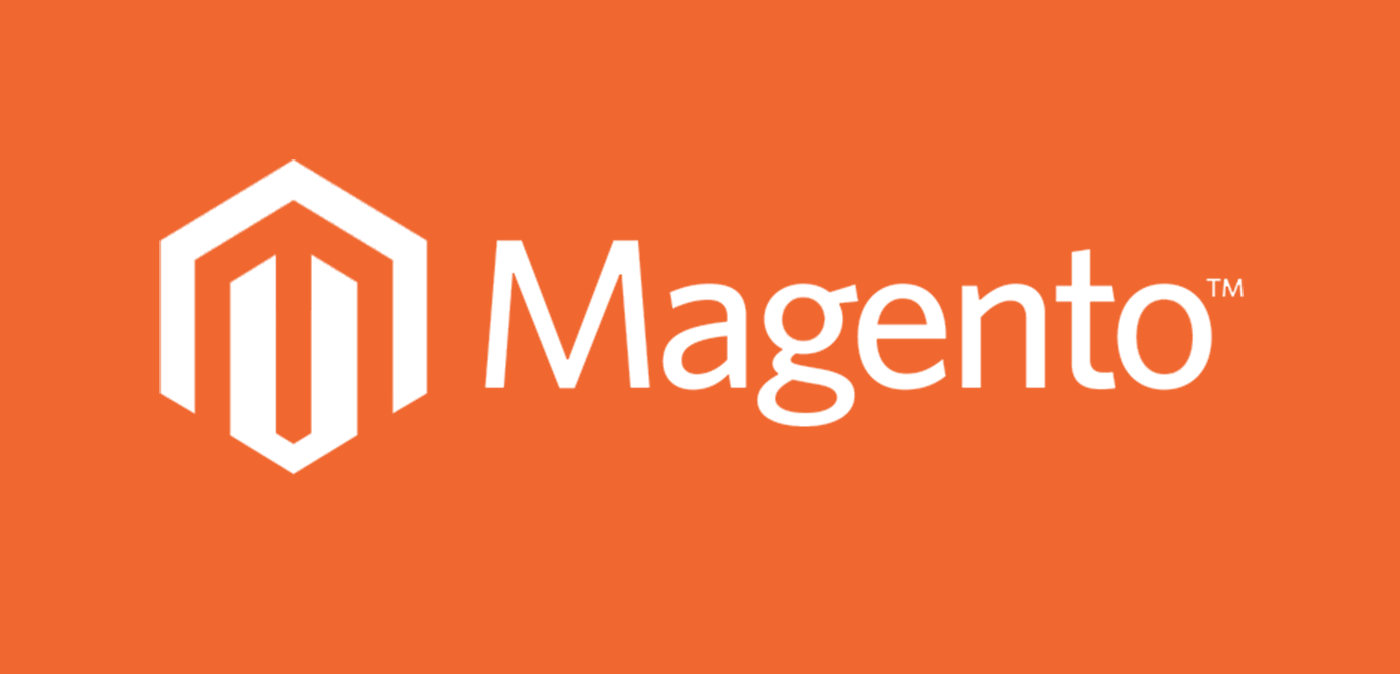
Magento is an open-source e-commerce platform that is primarily used for building and managing online stores and e-commerce websites. Here’s how Magento compares to other content management systems like WordPress and Drupal:
- E-commerce Focus:
- Magento is specifically designed for e-commerce, with a strong focus on providing advanced e-commerce features and functionality out of the box.
- This makes Magento a more specialized and targeted platform for building online stores, compared to the more general-purpose nature of WordPress and Drupal.
- Complexity and Scalability:
- Magento is generally considered more complex and powerful than WordPress, with a steeper learning curve.
- However, this complexity also makes Magento better suited for large-scale, enterprise-level e-commerce websites that require advanced features and customization.
- Flexibility and Customization:
- Magento is known for its extensive flexibility and customization capabilities, allowing developers to build highly tailored and complex e-commerce solutions.
- The platform’s modular architecture and large ecosystem of extensions and add-ons enable extensive customization and the integration of complex e-commerce functionality.
- Performance and Scalability:
- Magento is designed to handle high-traffic e-commerce websites and large product catalogs, with robust performance and scalability features.
- This makes Magento a suitable choice for businesses that anticipate significant growth and expect to handle a large volume of transactions and traffic.
- Security:
- Magento places a strong emphasis on security, with regular security updates and a dedicated security team.
- This makes Magento a preferred choice for e-commerce websites that handle sensitive financial and customer data.
- Developer Community and Resources:
- Magento has a large and active developer community, providing a wealth of extensions, themes, and resources.
- However, the Magento community is often perceived as more technical and developer-centric compared to the broader and more user-friendly WordPress community.
- Learning Curve and Adoption:
- Magento has a steeper learning curve compared to WordPress, particularly for non-technical users and small businesses.
- This may make Magento less accessible for businesses with limited technical resources or those that prioritize ease of use over advanced e-commerce features.
In summary, Magento is a powerful and flexible e-commerce platform that is well-suited for large-scale, enterprise-level online stores and e-commerce websites that require advanced features, complex customization, and high-performance requirements. However, it generally has a steeper learning curve and a more technical focus compared to the more user-friendly and beginner-friendly WordPress platform. The choice between Magento, WordPress, or other e-commerce solutions will depend on the specific needs and requirements of your online business, as well as the technical expertise and resources available.
Shopify

Shopify is a cloud-based e-commerce platform that allows users to create and manage online stores and sell products and services online. Here’s how Shopify compares to other e-commerce platforms like Magento and WooCommerce (WordPress):
- Ease of Use:
- Shopify is generally considered more user-friendly and easier to set up and manage than Magento, especially for small to medium-sized businesses and non-technical users.
- Shopify’s drag-and-drop website builder and admin interface make it more accessible compared to the more complex Magento platform.
- Hosting and Infrastructure:
- Shopify is a fully hosted and managed platform, meaning Shopify handles all the server infrastructure, software updates, and maintenance.
- This can be a significant advantage for businesses that don’t want to worry about the technical aspects of running an e-commerce website.
- In contrast, Magento and WooCommerce require users to manage their own hosting, servers, and infrastructure.
- Scalability and Performance:
- Shopify is designed to handle high-traffic and high-volume e-commerce websites, making it suitable for businesses of all sizes, from small startups to large enterprises.
- Magento generally offers more advanced scalability and performance features, especially for very large and complex e-commerce operations.
- Customization and Flexibility:
- Shopify provides a good level of customization through its theme editor, app store, and developer tools, but it is not as flexible and customizable as Magento or WooCommerce.
- Magento and WooCommerce offer more advanced customization and integration capabilities, especially for businesses with unique or complex requirements.
- Transaction Fees and Pricing:
- Shopify charges transaction fees on top of its monthly subscription plans, which can add up for high-volume businesses.
- Magento and WooCommerce generally have lower overall costs, as they don’t charge transaction fees, but require more technical resources to manage and maintain.
- Developer Community and Ecosystem:
- Magento has a larger and more active developer community, with a more extensive ecosystem of extensions and integrations.
- Shopify also has a robust app store and developer community, but it is generally more limited than Magento’s.
- Payment Gateway Integration:
- Shopify integrates with a wide range of popular payment gateways, making it easier to set up and accept payments.
- Magento and WooCommerce also offer extensive payment gateway integration options, but the setup may be more complex.
In summary, Shopify is a user-friendly, cloud-based e-commerce platform that is well-suited for small to medium-sized businesses that want a hassle-free, fully hosted solution. Magento, on the other hand, is a more powerful and flexible platform that offers more advanced customization and scalability options, but requires more technical expertise to manage. WooCommerce, as a WordPress plugin, provides a good middle ground between the two, offering more customization than Shopify with less complexity than Magento. The choice between these platforms will depend on the specific needs, technical capabilities, and budget of the business.
Conclusion
In the ever-changing world of content management systems, the platforms mentioned in this blog post have proven to be the most popular and influential in 2024. Each CMS offers unique strengths and capabilities, making them suitable for different types of websites and projects. By understanding the features, advantages, and target audiences of these CMS platforms, you can make an informed decision on the best solution for your own online presence or web development needs. As the CMS landscape continues to evolve, it’s essential to stay up-to-date on the latest trends and advancements to ensure your website or online business keeps pace with the competition.

Hello everyone! We’re Galussothemes content team, we love to write new blogs for WordPress Joomla! and other tech niches everyday. We’re talented young people who hold a strong passion for website development, designing, and marketing. Feel free to leave your comment if you have any issues or questions with our blogs.

